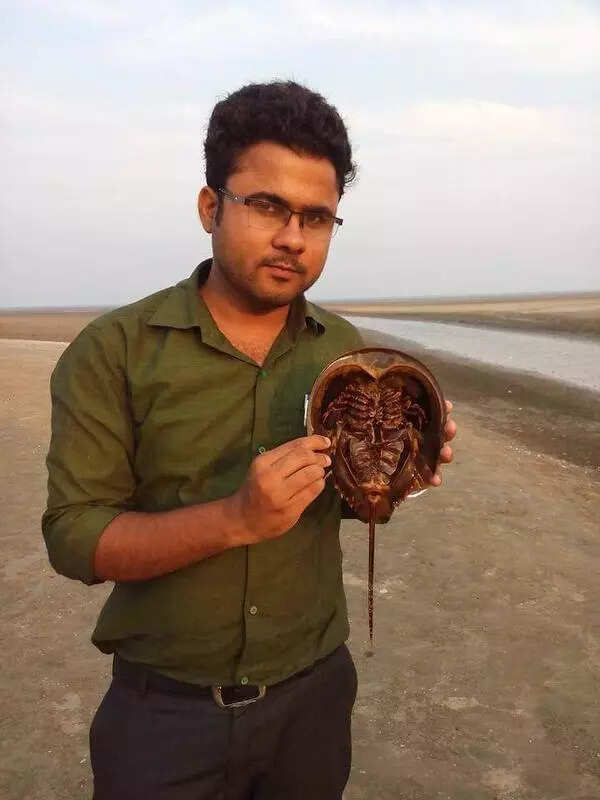Climate change threat to Asian horseshoe crabs: Study | Bhubaneswar News

Bhubaneswar: A six-year study conducted by 18 scientists from 11 countries, including one from Odisha, has revealed that all three Asian horseshoe crab species are highly vulnerable to future climate change. The research highlights that climate change severely slows the crabs’ genomic turnover, posing a nearly insurmountable obstacle to the rapid adaptation required under future environmental scenarios.
The study represents the first effort to provide genetic baseline data to assess the conservation status of Asian horseshoe crabs. Although anecdotal reports suggest declines in horseshoe crab populations worldwide, important baseline population data remain scarce.
“Our study not only provides the first genomic baseline data for the evaluation of Asian horseshoe crabs’ conservation status but also identifies core habitats that potentially act as corridors for Asian horseshoe crab populations with the impending anthropogenic global warming,” said Siddhartha Pati, a Balasore-based researcher and one of the study’s co-authors.
Horseshoe crabs are vital to coastal marine ecosystems, yet only four species remain worldwide. Of these, one inhabits the Atlantic coast of the United States and the Gulf of Mexico, while the other three are found in Asia. Notably, two of the Asian species are present in India.
“To understand population structure, evolutionary histories, and climate change-driven vulnerability, we comprehensively sampled the three Asian horseshoe crab species across their natural range. Our results provide baseline data for conservation action geared toward the continued existence of a species group that survived global change almost unaltered since before the age of the dinosaurs,” read the study.
The Atlantic horseshoe crab has been more intensively studied compared to its Asian counterparts, two of which are currently classified as ‘data deficient’ on the IUCN Red List, while the third is listed as ‘endangered’.
The study represents the first effort to provide genetic baseline data to assess the conservation status of Asian horseshoe crabs. Although anecdotal reports suggest declines in horseshoe crab populations worldwide, important baseline population data remain scarce.
“Our study not only provides the first genomic baseline data for the evaluation of Asian horseshoe crabs’ conservation status but also identifies core habitats that potentially act as corridors for Asian horseshoe crab populations with the impending anthropogenic global warming,” said Siddhartha Pati, a Balasore-based researcher and one of the study’s co-authors.
Horseshoe crabs are vital to coastal marine ecosystems, yet only four species remain worldwide. Of these, one inhabits the Atlantic coast of the United States and the Gulf of Mexico, while the other three are found in Asia. Notably, two of the Asian species are present in India.
“To understand population structure, evolutionary histories, and climate change-driven vulnerability, we comprehensively sampled the three Asian horseshoe crab species across their natural range. Our results provide baseline data for conservation action geared toward the continued existence of a species group that survived global change almost unaltered since before the age of the dinosaurs,” read the study.
The Atlantic horseshoe crab has been more intensively studied compared to its Asian counterparts, two of which are currently classified as ‘data deficient’ on the IUCN Red List, while the third is listed as ‘endangered’.
















